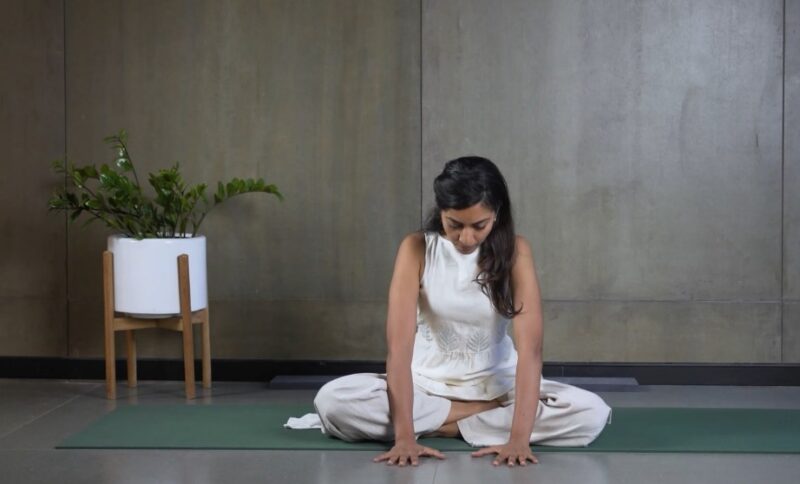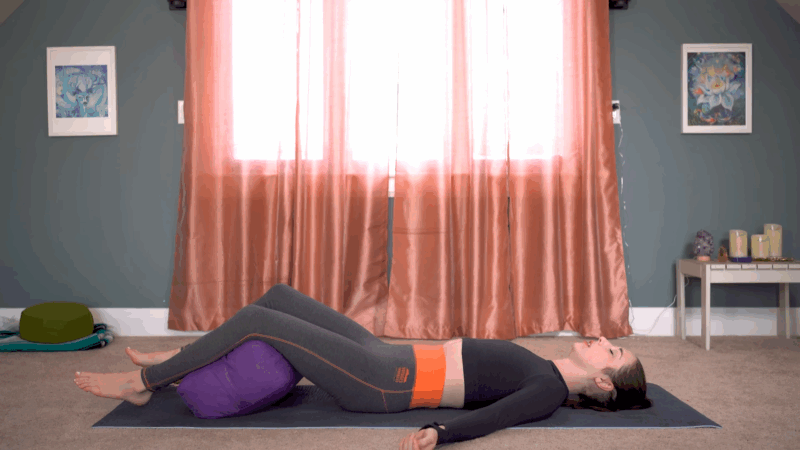
Share Post:
If you’ve been exploring ways to support your thyroid health, you’ve probably come across the practice of pranayama. As someone who’s always on the lookout for natural ways to improve my well-being, I’ve found pranayama to be a really useful.
Let’s chat about how this ancient practice of breath control can help manage thyroid conditions by reducing stress, boosting metabolism, and balancing the endocrine system.
Why Pranayama for Thyroid Health?
Thyroid imbalances, whether it’s hypothyroidism or hyperthyroidism, can really mess with our daily lives. From fatigue and weight gain to anxiety and palpitations, the symptoms are no fun.
According to Juan Bernal, MD, PhD, Thyroid hormones are crucial for normal brain development and function. Imbalances can lead to cognitive issues, affecting memory, concentration, and overall mental clarity, which can disrupt daily activities and quality of life.
Pranayama offers a holistic approach that addresses these issues by calming the mind and revitalizing the body. Here are some specific techniques that have shown promise in promoting thyroid health.
Techniques and Steps

1. Ujjayi Pranayama (Ocean Breath)
Steps
- Find a Comfortable Seat: Settle into a seated position that feels good for you.
- Relax and Breathe Deeply: Let your body relax and start focusing on deep breathing.
- Inhale through Your Nose: Breathe in deeply through your nose, gently constricting the back of your throat to create a soft, whispering sound.
- Exhale Slowly: Maintain the throat constriction as you exhale slowly through your nose.
- Repeat: Keep this cycle going for several minutes, finding a rhythm that’s soothing.
Benefits
Ujjayi pranayama is particularly beneficial for hypothyroidism. It can help reduce thyroid problems by promoting relaxation and enhancing metabolic function.
A study from the International Journal of Novel Research and Development highlights that Ujjayi pranayama helps in balancing the thyroid gland. The technique is believed to reduce the symptoms of hypothyroidism by calming the nervous system and improving overall metabolic rates.
2. Nadi Shodhana (Alternate Nostril Breathing)

Steps
- Sit in Meditation Pose: Find a comfortable meditation pose.
- Close Right Nostril: Use your right thumb to gently close your right nostril.
- Inhale Left: Inhale deeply through the left nostril.
- Switch and Exhale Right: Close the left nostril with your ring finger and exhale through the right nostril.
- Inhale Right: Breathe in through the right nostril, close it with your thumb, and exhale through the left nostril.
- Continue Alternating: Keep alternating for 5-10 minutes.
Benefits
Nadi Shodhana is great for balancing hormones and improving respiratory function. It helps in calming the nervous system, which in turn supports thyroid health.
As per FlexifyMe, breathing exercises, including Nadi Shodhana, can support thyroid health by calming the nervous system and reducing stress levels, which are known factors that affect thyroid function.
3. Kapalabhati (Skull Shining Breath)

Steps
- Comfortable Position: Sit comfortably with your spine straight.
- Deep Breath In: Take a deep breath in.
- Forceful Exhale: Exhale forcefully through your nose, pulling your navel and abdomen towards your spine.
- Passive Inhale: Inhale passively and repeat the exhale-inhale cycle quickly for about 20 breaths.
- Rest and Repeat: Rest for a bit and repeat the cycle for 2-3 rounds.
Benefits
Kapalabhati is known for stimulating the thyroid gland and increasing metabolic rate. It energizes the body and helps clear nasal passages, making it easier to breathe.
The rapid breathing technique of Kapalabhati increases the basal metabolic rate. According to research published on the National Center for Biotechnology Information (NCBI), fast breathing exercises, such as those in Kapalabhati, significantly elevate the metabolic rate.
4. Bhramari (Bee Breath)

Steps
- Sit with Spine Erect: Ensure your spine is straight and sit comfortably.
- Close Eyes and Ears: Use your thumbs to close your ears and your fingers to gently close your eyes.
- Deep Inhale: Inhale deeply.
- Hum like a Bee: As you exhale, produce a humming sound like a bee, focusing on the vibration in your throat and head.
- Repeat: Continue this process for 5-10 minutes.
Benefits
Bhramari pranayama helps calm the mind and stimulate the thyroid gland. It’s a fantastic way to reduce stress and anxiety, which can exacerbate thyroid issues.
Practices like Bhramari Pranayama can stimulate the thyroid gland. The rhythmic humming during the practice is believed to massage the throat region, thereby enhancing the functioning of the thyroid gland. – Dr. Koshal Rathore
5. Supporting Practices

Yoga Poses
Incorporating specific yoga or somatic yoga poses can complement pranayama practices and further support thyroid health. Some beneficial poses include:
- Sarvangasana (Shoulder Stand): This pose stimulates the thyroid gland and promotes blood flow.
- Halasana (Plow Pose): Helps in massaging the thyroid gland and improving its function.
- Matsyasana (Fish Pose): Opens up the throat area and stimulates the thyroid gland.
Meditation
Regular meditation is another powerful tool. Stress is a common trigger for thyroid imbalances, and meditation can help manage stress levels effectively.
Just a few minutes of meditation each day can make a big difference in how you feel.
Putting It All Together
Combining pranayama with yoga poses and meditation creates a holistic routine that supports thyroid health from multiple angles. Here’s a simple daily routine to get you started:
- Morning: Start your day with 5-10 minutes of Kapalabhati to energize your body and stimulate your thyroid gland.
- Midday: Take a break for Nadi Shodhana to balance your hormones and improve respiratory function.
- Evening: Wind down with Ujjayi Pranayama followed by Bhramari to relax your mind and body.
- Yoga Poses: Incorporate Sarvangasana, Halasana, and Matsyasana into your routine, holding each pose for a few breaths.
- Meditation: Spend 5-10 minutes meditating, focusing on your breath and letting go of stress.
Concluding Thoughts
Pranayama is a wonderful practice for anyone looking to support their thyroid health naturally. The techniques we discussed not only help in managing thyroid conditions but also promote overall well-being.
Give them a try and see how they make you feel. Your thyroid will thank you! Feel free to reach out with any questions or share your experiences with pranayama. I’d love to hear from you!











